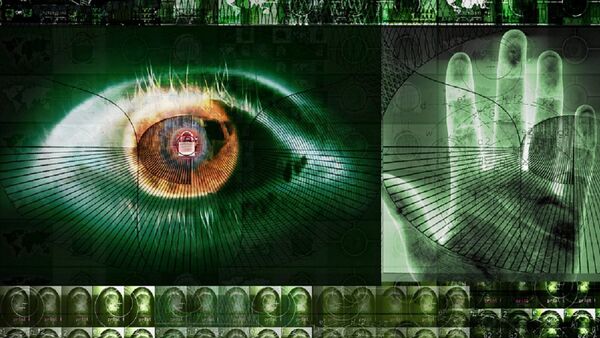The issue of handing over biometric data is one area that remains controversial, particularly when it involves children.
A law passed in 2001 made it legal for schools to take biometric information from children in the form of fingerprints that would go into a database. They said it would be used for things like canteen payments and library books.
But with concerns growing, the Parliamentary Science and Technology Committee has launched an inquiry into the use of biometric data, especially in schools.
‘Big Brother' State?
Usually such information is used to identify criminals, so many parents were confused as to why this legislation was introduced, and expressed doubts as to its intended purpose. Many observers saw it as Britain edging one step closer to a Big Brother state.
According to Big Brother Watch, a group that monitors policies that impinge on personal privacy, it was the first time an ‘explicit legal framework' had arisen for the purpose of taking biometric data in schools.
The gathering of data wasn't just limited to fingerprinting.
Pippa King is a parent and blogger who writes about biometrics and data privacy issues. She says information gathering came in various forms: "using infrared palm scanners trialled on primary school children in 2006 so they could eat, iris scanning children for lunch lines in 2007, facial scanning kids in 2010 to stop them from turning up to school late, and voice biometrics planned in 2007".
Under the Protection of Freedoms Act 2012, parents must give their consent for the data of a child under 18 to be taken, although children have the right to override this.
The advocacy group Privacy International says thousands of pupils have been fingerprinted without the knowledge or consent of their parents.
Big Brother Watch meanwhile found that of 1,255 secondary schools surveyed, 69% consulted parents about the use of biometric technology. Around 40% of English schools use such systems.
In many cases, as Pippa King points out, children rarely put up an objection.
"We now have a generation used to using their biometrics without much question, having supplied them daily in a compliant environment — school", she says.
Who Watches The Watchmen?
Schools cited many reasons for taking biometric information- to create efficiency in lunch queues, encourage healthier eating, and improve reading.
But as Pippa King asks, "Adult society does not give up high levels of personal data in order to eat and gain access to library books via our biometrics — why do our children need to?"
And although the data is supposedly only kept for these purposes, parents point out that it could actually end up anywhere.
A 2012 government report contained guidelines on the use of biometric data for the purpose of school proprietors, head teachers and staff, following the 2012 Protection of Freedoms Act. It mainly addressed issues on consent of both the parents and the child.
It wasn't clear about legislation regarding how data could be used, saying only "the school or college must tell you what it intends to do with the information".
For the 13 years since the legislation was introduced, the political reasoning behind it remains unclear.
Blogger Pippa King believes it may be a way of conditioning pupils into accepting ID cards within the next 10-15 years. ID cards have been debated for some time, but generally rejected by the British public as an infringement on their liberty.
The gathering of biometric data remains a grey area. But with a freedom of information culture and the younger generation increasingly conditioned to see the taking of data as normal, further legislation on the issue might be on the horizon.




